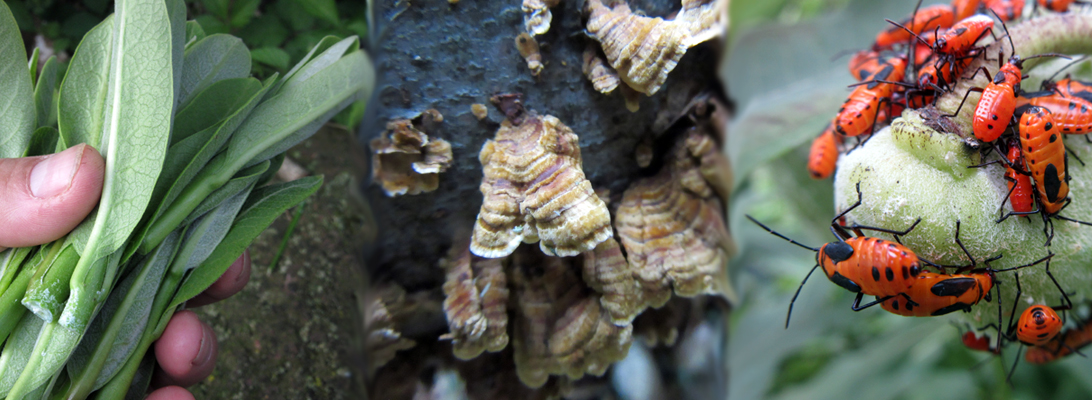
Beyond the War on Invasive Species by Tao Orion, Chelsea Green Publishing 2015.
So I have a new favorite Permaculture/rewilding book! I know this book covers a controversial issue, that tends to incite strong emotions, but I just had to review it. There have been a few authors over that last 10 or so years that have challenged the status quo view on invasive plants, and I respect them for putting their reputations on the line, but their books have maybe gone a little too far and almost glamorized invasives, and they haven’t offered many solutions. This is not that kind of book.
When I 1st got into plants, I bought strongly into the standard notion that native always equals good, and non-native always equals bad. It seemed pretty straight forward, and I could see the pattern all around me in the woods. As I was exposed to more nuanced views, I reacted like many people do, with anger. As I read more about Permaculture, I slowly warmed to the idea that weeds could play an important role in healing the disturbances that modern humans have caused, however I still held firm on my opposition to invasives in later succession or less disturbed areas. Finally a couple years ago, when I was exposed to the critique of the ties between Monsanto (and other chemical companies) and some of the larger organizations that encourage large scale chemical control of invasive species, I flipped and went to the rah rah invasives are the solution to all our problems end of the spectrum. Since then I have continued to evolve a more balanced and nuanced view, and started to develop an approach to invasives that I feel is solution based, and should work no matter what the ultimate truth is about these controversial beings.
That is where Tao Orion’s book comes in. It basically lays out everything that I was trying to figure out how to put out there, but it does so in a much more compelling manner that I would have, and it comes from someone who is not only more well read than I, but also has much more hands on experience with managing invasives. Tao got her start in the ecosystem restoration industry, but spent years using less conventional techniques on her own organic farm.
This book lays out a strong critique of the war on invasive species, but just like you don’t have to naive about the problems with drugs to be opposed to the war on drugs, the same is true for invasive species and the war that is being waged on them. Tao delves into the issues that come from viewing all ecological change as “harm”, what happens when the chemical industry and environmental groups share economic interests, the poor quality of safety testing on many herbicides, and the lack of systems thinking in our approaches to invasives. This critique is important and well laid out, but much more important is the positive vision that is put forward. While there are specific techniques offered, the main strength of this book is that it it refuses to get caught up in laying out universal solutions, and rather focuses on how to see what might be causing invasions, and whole system solutions to the problems.
My favorite section comes in the last chapter, when Tao gives an example of a Permaculture solution to an actual situation near where she lives. The example is of a park that is filled with a tall invasive grass, that is not only changing the local habitat, but also providing cover for homeless people. The park’s current strategy is to spray the grass with large amounts of herbicides, but Tao asks, what if instead the homeless people where allowed to build themselves small homes, using invasive species (including the grass) as construction materials, and allowed to live there in exchange for managing the land.
Yes, I know this scenario is not likely to be taken up in most towns in this country, but what does that say about us? What if we stopped forcing homeless people to be homeless? What if instead of declaring war on all our problems, we started living into them? What if we moved away from spraying ecosystems with industrial chemicals, and instead learned how to provide for our selves and our communities from them? What if the most abundant and competitive species were the best ones to use for food, medicine, clothing, and shelter?
I don’t know, but I am glad this book is out there reminding us to take a step back and look at our problems with new eyes.
Thanks for reading,
Nate
